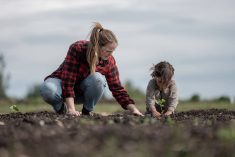Experts see succession through their own lenses. What your accountant thinks is best for taxes might not jibe with advice from your lawyer or retirement planner. You’ll see it below from five experts who talked to us after one succession
workshop hosted by the Canadian Association of Farm Advisors. The only point they all agree on is that conflicting advice can be a good thing, as long as it means you’re seeing all sides. Still, it’s best to be forewarned.
Read Also

‘No agenda, no attenda’: How to professionalize your family farm meetings
Establishing meeting ground rules can help a farm family find ways to communicate that work for the business and the family.
At a recent workshop, lawyer Joy Levison distributed the forms that couples are given to declare family property when they separate, covering everything including automobiles, bank account balances, jewellery and land. The forms were hard slogging, but they illustrated a common concept in family law. Property acquired during the marriage is divided between partners upon marriage breakdown — and the matrimonial home is shared equally.
Levison wanted to drive home one point: You must understand family law to properly plan for farm succession.
A practical example is that, from a tax perspective, an accountant will often advise having a property in the names of both husband and the wife. But from a family law perspective, should a marriage break down, this joint ownership could throw a wrench in succession intentions.
Levison suggests considering a marriage contract. “It’s hard to contemplate the end at the beginning,” she says, but it is necessary for a strong farm succession plan.
What else can be done to plan for a smooth succession? Document everything. Gifts and property held prior to the marriage are often not divided upon marriage breakdown. But… the onus of proof is on the party claiming the exemption from division.
For Levison, the best plan takes into account intended as well as unintended outcomes. That means considering the needs of retiring and acquiring parties, the future viability of the farm operation, and the tax consequences of any transfer of assets, both immediate and future.
In making a plan, she encourages a team approach, including a lawyer, accountant, financial consultants and farm business advisors, and also involving family members who might be affected.
Single best piece of advice:
“Take your time! Make sure you understand the issues as fully as possible and make your decision based on knowledge, not just a need to ‘get ‘er done’!”














